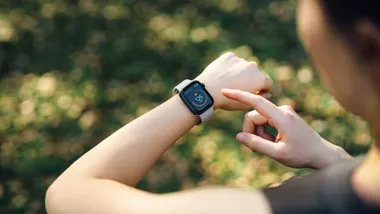Extreme dieting is seen by some as a quick fix to fight the flab. But could you end up losing more than you bargained for?
For some people, dieting means cutting down on chocolate and wine, and giving fast food a miss. For others it’s following a healthy eating plan or shaving a few kilojoules off their daily intake. But for the 3.71 million Australians now classed as obese, according to a report commissioned by Diabetes Australia, it could mean losing friends, family or even a partner if they head down the extreme dieting route.
In a country where obesity is on the rise and Medicare Australia statistics show procedures like gastric banding have risen from around 1000 in 1998 to 13,500 in 2008, extreme diets are becoming an increasingly popular way to shed the kilos. But while you might see quick results, the weight is unlikely to stay off in the long term – and the diet could affect your behaviour and, ultimately, your relationships.
Mood matters
“Extreme dieting can affect a person’s emotions. It can increase anxiety levels as more of the stress hormone cortisol is released into the body, leaving them feeling grumpy and unable to cope with certain situations,” says Dr Deborah Thomas (www.deborahjthomas.com.au), a Sydney-based psychologist who has lectured on the subject of weight loss. This can leave loved ones thinking you’ve had a personality transplant.
“This hasn’t really happened – the idea of personality is quite a stable concept,” says Dr Thomas. “But you are likely to experience mood swings, which can make it seem as if your personality has changed.”
Another reason people may think you’ve changed is because personality traits that have been hidden until now might come to the surface. And this doesn’t just happen to extreme dieters. “For example, very overweight people have a tendency to hide behind the ‘jolly fat person’ persona,” says Dr Thomas. “As they feel less of a need to hide, that persona could be replaced by someone who’s more quiet or serious. Overweight people are often very generous and giving too, always doing things for others. As they lose weight they gain more of a sense of self, of what they want and need, rather than what everyone else wants and needs.”
Fickle friends
Unfortunately, these changes can be seen as negative by friends and family. “They might resent that they’re no longer the centre of attention, or miss that person who always made them laugh. And it’s only natural to miss someone’s generosity if you’ve been at the receiving end of it. All of a sudden the dieter is putting themselves first and some people find this difficult to deal with,” says Dr Thomas.
Most loved ones will get used to it and be glad for the dieter’s success (unless they’ve lost weight in an unhealthy manner), but for those who don’t it can spell the end of a relationship. “If someone can’t support you in your bid to become healthy and lose weight it was probably an unhealthy relationship in the first place,” says Dr Thomas. But there is a bright side. “Some relationships may end, but it’s likely the dynamics of other friendships will change – you might grow closer to some people and you’ll probably find new friends who support you in what you’re doing.”
Food focus
Something else that might cause resentment is the time dedicated to the task of losing weight. “It’s not easy,” says Dr Thomas. “It takes a lot of time and effort to change your eating habits and re-educate yourself. For example, the most successful dieters are those who spend time preparing food. This can take them away from other activities, such as spending time with friends. Like someone with a new hobby, a dieter can become absorbed in what they’re doing. That should settle down after a while, but if it doesn’t you might have a problem.”
Dr Thomas is referring to extreme dieters. “Focusing on a very strict eating plan, or very low-calorie diet, can leave someone with little time or energy to devote to anything else. Other things pale into insignificance if a person becomes obsessed with what they eat.”
This can affect all areas of life, including relationships. “If going out for dinner with your partner once a week was something you both enjoyed, then all of a sudden you won’t go, they’re likely to feel resentful,” says Dr Thomas. Instead, try accommodating both your needs by choosing a restaurant with healthy options, and remember there is more to life than watching your waistline.
Slow and steady
Extreme dieting can also leave you feeling low and lethargic. Again, this can put a strain on relationships if friends invite you places and you constantly say ‘no’. “If you’re not getting enough nutrients, you’ll feel tired and exhausted and have no energy to go anywhere,” says Dr Thomas. “This will affect your moods and your thinking process.” Impaired memory, a short attention span and slower reaction times are all a possibility.
Lose weight steadily and healthily and it’s a different story. “You’ll feel more energetic if you eat right and start exercising,” says Dr Thomas. “This will leave you thinking clearer and feeling better about yourself, which will make you feel more comfortable around other people.”
Nourish and nurture
So remember – our brains don’t work as effectively without the right diet, which can affect our moods and make it seem as if our personality has changed. And no one wants to watch the one they love turn into a grumpy, irritable calorie counter.
“There’s nothing wrong with dieting – losing weight can have a very positive influence on a person’s self-esteem, which should be viewed as a good ‘change’ to their personality. But if you’ve become obsessed with it, you need to take a step back,” says Dr Thomas. “Extreme dieting rarely works and only leaves the dieter feeling deprived.” Eating is one of the most basic ways we nourish our body. Deny your stomach too much and you could be denying your soul, as well as good times with friends and family.










